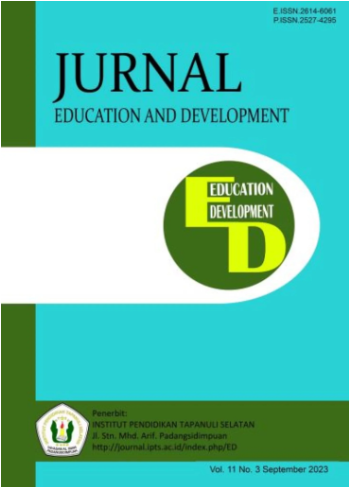STUDENTS’ PERCEPTION IN PURSUING MARITIME HIGHER EDUCATION IN DIGITAL ERA
Main Article Content
Abstract
The present study aimed to investigate students’ perception in pursuing maritime higher education in digital era. It involved 72 students from 3 different majors in an Indonesian maritime higher education. This study used a quantitative research design which was facilitated by a survey questionnaire to gather the data. The questionnaire was in the form of 5-Likert scale consisting of 4 categories: education quality, economic motif, job availability, and self-competence. The data were analyzed using SPSS 25 employing Parametric tests analysis: descriptive statistics, Pearson r correlation, and Cohen d coefficient to find out the factors affecting students’ acceptance in continuing their degree in maritime higher education. The results showed that the students considered economic motif as the highest factor affecting their choice in pursuing higher degree in maritime sectors. Followed by job availability and self-competence, these factors became very important in competing toward professional maritime sectors. The lowest factor was education quality, yet the maritime higher education should keep up with improving maritime education quality as maritime industries developed fast in digital era. Some recommendations have been discussed to give insightful opinion for education policy makers and managerial board of maritime higher education institutions.
Article Details

This work is licensed under a Creative Commons Attribution-NonCommercial-ShareAlike 4.0 International License.
References
Anggoro, K. J., & Pratiwi, D. I. (2023b). University students’ perceptions of interactive response system in an English language course: a case of Pear Deck. Research in Learning Technology, 31, 1–13. https://doi.org/10.25304/rlt.v31.2944
Baylon, A. M., & Santos, V. E. M. R. (2011). The challenges in Philippine maritime education and training. International Journal of Innovative Interdisciplinary Research, 1(1), 34–43.
Demirel, E. (2020). Maritime education and training in the digital era. Universal Journal of Educational Research, 8(9), 4129–4142. https://doi.org/10.13189/ujer.2020.080939
Horck, J. (2010). The gender perspective in maritime education and training. WMU Journal of Maritime Affairs, 9(1), 93–119. https://doi.org/10.1007/BF03195168
Lau, Y. yip, & Ng, A. K. Y. (2015). The motivations and expectations of students pursuing maritime education. WMU Journal of Maritime Affairs, 14(2), 313–331. https://doi.org/10.1007/s13437-015-0075-3
Manuel, M. E. (2017). Vocational and academic approaches to maritime education and training (MET): trends, challenges and opportunities. WMU Journal of Maritime Affairs, 16(3), 473–483. https://doi.org/10.1007/s13437-017-0130-3
Muijs, D. (2010). Doing Quantitative Research in Education with SPSS (#2). SAGE Publications Ltd.
O’Neil, W. A. (2003). The human element in shipping. WMU Journal of Maritime Affairs, 2(2), 95–97.
Pallis, A. A., & Ng, A. A. K. Y. (2011). Pursuing maritime education: an empirical study of students’ profiles, motivations and expectations. Maritime Policy and Management, 38(4), 369–393. https://doi.org/10.1080/03088839.2011.588258
Pertiwi, A. K., & Pusparini, R. (2021). Vocational high school English teachers’ perspectives on “merdeka belajar” curriculum. Edukatif: Jurnal Ilmu Pendidikan, 3(5), 1982–1992. https://edukatif.org/index.php/edukatif/article/view/672
Pratiwi, D. I., Astuti, S. W., Puspitasari, A., & Fikria, A. (2021). Analisis tata kelola perguruan tinggi vokasi dan indeks kepuasan siswa pada politeknik perkeretaapian Indonesia Madiun. Edukatif: Jurnal Ilmu Pendidikan, 3(6), 4556–4567. https://doi.org/https://doi.org/10.31004/edukatif.v3i6.1491
Pratiwi, D. I., Prayogo, D., & Runadi, T. (2023). Pursuing maritime education in digital era : students ’ voices. Jurnal Pendidikan Progresif, 13(3), 1174–1189. https://doi.org/10.23960/jpp.v13.i3.2023
Pratiwi, D. I., Puspitasari, A., & Fikria, A. (2023). Mind-mapping technique and writeabout application integration in an online writing class: an Indonesian vocational university context. Teaching English as a Second Language Electronic Journal (TESL-EJ), 26(4), 1–20. https://doi.org/10.55593/ej.26104a4
Pratiwi, D. I., & Ubaedillah, U. (2021). Digital vocabulary class in english for railway mechanical technology. Teaching English with Technology, 21(3), 67–88. https://tewtjournal.org/download/digital-vocabulary-class-in-english-for-railway-mechanical-technology-by-damar-isti-pratiwi-and-ubaedillah-ubaedillah/
Shariq, M. (2020). Mobile learning in business English course: adoptability and relevance to Saudi EFL students’ learning styles. The Asian ESP Journal, 16(4), 334–354.
Sofiana, N., Yuliasri, I., & Haryanto, H. (2018). Promoting English education along Indonesian coastal zone. IOP Conference Series: Earth and Environmental Science, 175(1). https://doi.org/10.1088/1755-1315/175/1/012220
Srisermbhok, A. (2020). Analysis of the impact of IT and media on business English major students ’ autonomous learning. Rangsit Journal of Educational Studies, 7(1), 1–11.
Suwantarathip, O. (2019). Predictors of students’ satisfaction with a hybrid English course. Turkish Online Journal of Distance Education, 20(1), 115–130. https://doi.org/10.17718/tojde.522427
Ziarati, R., Demirel, E., & Albayrak, T. (2010). Innovation in maritime education and training. International Maritime Lecturers Association (IMLA), 21–26.

